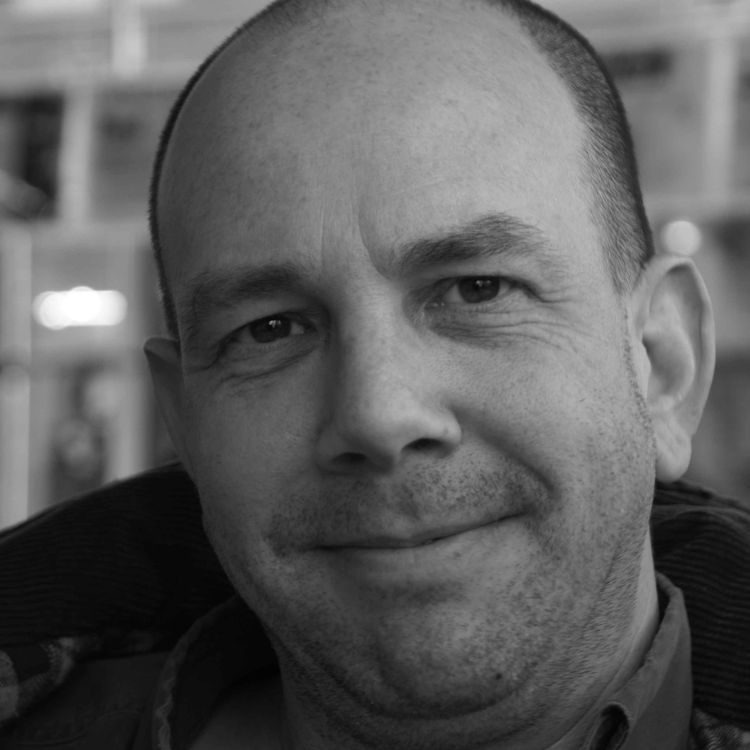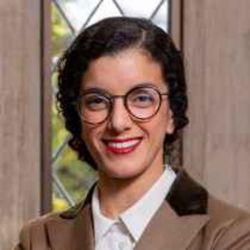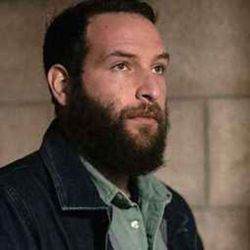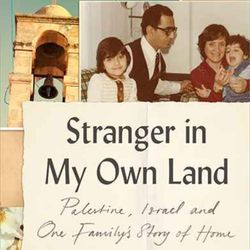Share

Jerusalem Unplugged
Israel and Turkey with Howard Eissenstat
Season 6, Ep. 125
•
In this first episode of the new year, I had the opportunity and pleasure to talk to Howard Eissenstat who currently is is an Laurentian Associate Professor of Middle East history and History Department Chair at St. Lawrence University and non-resident scholar at the Middle East Institute in Washington. With Howard we first looked at the legacy of President Carter in the Middle East and from there we unpacked the long and complex relations between Israel and Turkey. Lastly, as we are approaching the transition from the Biden to the Trump administrations we tried to understand what this means for Turkey.
More episodes
View all episodes

124. Palestinian Politics with Dana El Kurd
53:08||Season 6, Ep. 124There is so much talking about Israel, the war on Gaza, Lebanon and now Syria, but what about Palestinian politics? In this episode I talked to Dana El Kurd a Palestinian political scientist with a deep knowledge and understanding of Palestinian politics. We started our conversation discussing her book published in 2020 Polarized and Demobilized: Legacies of Authoritarianism in Palestine, from there we move to talk about the incoming Trump administration, the role of Saudi Arabia but more importantly how politics is experienced and imagined in Palestine.
123. Peace Now with Mauricio Lapchik
01:01:02||Season 6, Ep. 123In the first episode of season 6 I have interviewed Maurcio Lapchik, the Director of External Relations at Peace Now (Shalom Akshav), the largest and longest-standing Israeli movement advocating for peace through public pressure. While we briefly introduced Peace Now to those who don't know yet this organization, we then discussed the current standing of the peace camp in Israel. While the picture is rather grim, Mauricio keeps hoping for the best.
122. Daybreak in Gaza with Mahmoud Muna and Matthew Teller
01:19:17||Season 5, Ep. 122This is Gaza – a place of humanity and creativity, rich in culture and industry. A place now utterly devastated, its entire population displaced by a seemingly endless onslaught, its heritage destroyed.Daybreak in Gaza is a record of an extraordinary place and people, and of a culture preserved by the people themselves. Vignettes of artists, acrobats, doctors, students, shopkeepers and teachers offer stories of love, life, loss and survival. They display the wealth of Gaza’s cultural landscape and the breadth of its history.Daybreak in Gaza humanises the people dismissed as statistics. It stands as a mark of resistance to the destruction and as a testament to the people of Gaza.
121. American Jews and the Movement for Justice in Palestine with Oren Kroll-Zeldin
01:02:34||Season 5, Ep. 121In this season 5 finale episode I had the pleasure to interview Oren Kroll-Zeldin, the author of Unsettled: American Jews and the Movement for Justice in Palestine. Unsettled digs into the experiences of young Jewish Americans who engage with the Palestine solidarity movement and challenge the staunch pro-Israel stance of mainstream Jewish American institutions. The book explores how these activists address Israeli government policies of occupation and apartheid, and seek to transform American Jewish institutional support for Israel.Oren identifies three key social movement strategies employed by these activists: targeting mainstream Jewish American institutions, participating in co-resistance efforts in Palestine/Israel, and engaging in Boycott, Divestment, and Sanctions (BDS) campaigns. He argues that these young people perceive their commitment to ending the occupation and Israeli apartheid as a Jewish value, deeply rooted in the changing dynamics of Jewish life in the twenty-first century. By associating social justice activism with Jewish traditions and values, these activists establish a connection between their Jewishness and their pursuit of justice for Palestinians.In a time of internal Jewish tensions and uncertainty about peace prospects between Palestine and Israel, the book provides hope that the efforts of these young Jews in the United States are pushing the political pendulum in a new direction, potentially leading to a more balanced and nuanced conversation.
120. Stranger in My Own Land with Fida Jiryis
01:13:32||Season 5, Ep. 120In this very moving and heartwarming interview I had the opportunity to discuss with Fida Jiyris her work, a beautifully written memoir that tells the story of her and her family journey, which is also the story of Palestine, from the Nakba to the present—a seventy-five-year tale of conflict, exodus, occupation, return and search for belonging, seen through the eyes of one writer and her family. Fida reveals how her father, Sabri, a PLO leader and advisor to Yasser Arafat, chose exile in 1970 because of his work. Her own childhood in Beirut was shaped by regional tensions, the Lebanese Civil War and the 1982 Israeli invasion, which led to her mother’s death. Thirteen years later, the family made an unexpected return to Fassouta, their village of origin in the Galilee. But Fida, twenty-two years old and full of love for her country, had no idea what she was getting into.Stranger in My Own Land chronicles a desperate, at times surreal, search for a homeland between the Galilee, the West Bank and the diaspora, asking difficult questions about what the right of return would mean for the millions of Palestinians waiting to come ‘home’.
119. Dwelling on The Past: Memory and Dispossession with Yair Agmon
54:45||Season 5, Ep. 119What is cultural memory? How do settlers use it in East Jerusalem to dispossess Palestinians? In this episode I interview film maker and scholar Yair Agmon. Known for short movies like Once Upon a School (2023), Like a Beating Heart (2022) and Our Heroes (2016), Yair is now working on his PhD at UCLA 'Dwelling on The Past: Memory, Discard, and Dispossession at The City of David National Park,” which explores how settlers in East Jerusalem use memory to give purpose and meaning to a territorial project in Palestinian East Jerusalem'.We discussed his work, the question of memory and how the City of David has become more than an archeological site.
118. Israel's Black Panthers with Asaf Elia-Shalev
01:08:53||Season 5, Ep. 118Today the guest of Jerusalem Unplugged is Asaf Elia/Shalev the author of Israel's Black Panthers that tells the story of the young and impoverished Moroccan Israeli Jews who challenged their country's political status quo and rebelled against the ethnic hierarchy of Israeli life in the 1970s. Inspired by the American group of the same name, the Black Panthers mounted protests and a yearslong political campaign for the rights of Mizrahim, or Jews of Middle Eastern ancestry. They managed to rattle the country's establishment and change the course of Israel's history through the mass mobilization of a Jewish underclass. Most of the leaders of the Black Panthers were located in Musrara, a previously Palestinian inhabited neighborhood of Jerusalem that in 1948, due its proximity with the Green Line became a sort of no man's land taken over by poor Mizrahi jews who had nowhere else to go.
117. Give Peace a Chance with John Lyndon and ALLMEP
01:00:57||Season 5, Ep. 117For the series dedicated to current events, today we have the privilege of speaking with John Lynden, executive director of ALLMEP - the Alliance for Middle East Peace. ALLMEP is an impressive coalition, bringing together over 160 organizations and hundreds of thousands of Palestinians and Israelis. Their mission is to build cooperation, justice, equality, a shared society, mutual understanding, and ultimately lasting peace between their communities.In times of crisis, ALLMEP works to add stability. They foster cooperation initiatives that increase impact on the ground. And they cultivate an environment more conducive to peace over the long term through their tireless efforts.In our conversation today, John will share insights into ALLMEP's vital work, as well as his perspectives on the fragile peace camp in Israel and Palestine following the events of October 7th. We'll discuss the challenges they face, the grounds for hope, and how people of good faith can support peace building.